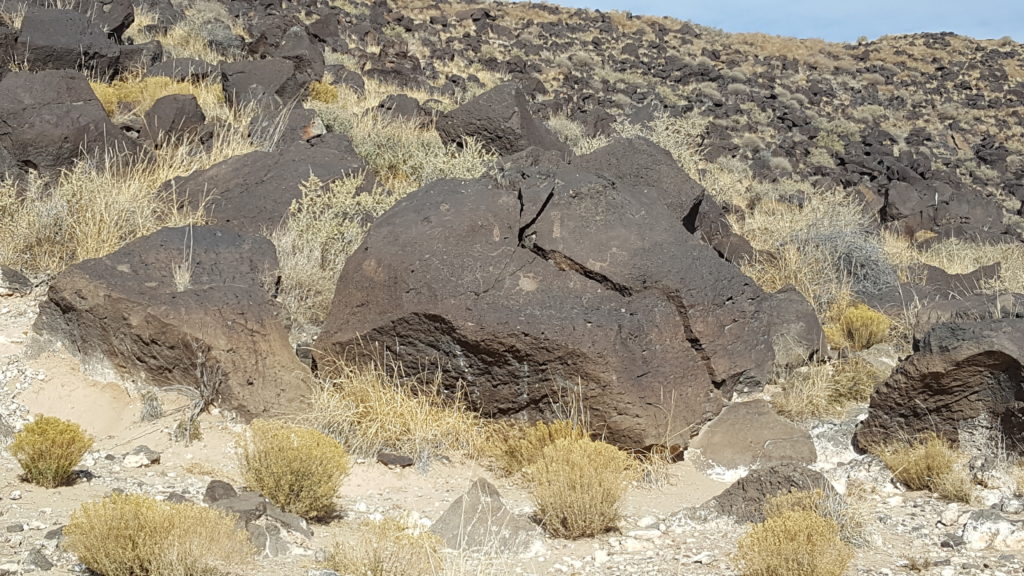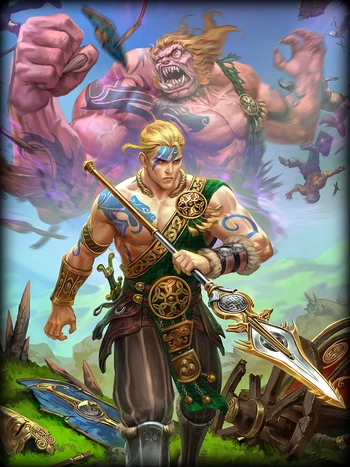"Yet each mystery explained, as the science-loving Pope Francis would say, builds the case for God. It's a case I came to understand, to feel it and see it, only after I'd allowed myself to be amazed."
So said columnist and writer Timothy Egan in his newest book, A Pilgrimage to Eternity: From Canterbury to Rome in Search of a Faith. Have you ever been amazed? To be amazed is to experience that which you did not expect, to bump into something you did not think you would see. It is to be pushed outside the boundaries of what you thought possible: to be thrust into a new way of thinking about the possibilities of existence.
Although we strive mightily in this modern age to forswear any possibility of miracles or the supernatural, we nevertheless live as if we do: we love being amazed. We love being startled, enlightened, or overwhelmed with a new insight or experience. And I wonder what this says about us. Are we, as Enlightenment philosopher Immanuel Kant might say, creatures of the noumenal daily grappling with the phenomenal, beings of materiality wrestling with presences immaterial? Or we, as twentieth century philosopher A. J. Ayers averred, people who should ipso facto reject anything that we cannot with language understand?
To be amazed, it seems, is necessarily to assent to the possibility, perhaps the reality, of a mystifying but comprehensible unseen. It is to agree that life is more than what it, materially speaking, appears to be.
And to embrace the wonder of what this holds.
Wednesday, October 30, 2019
Thursday, October 24, 2019
Recently, I read an article by a person who had just undergone a gender transition, stepping into the fullness of the woman they had always thought they (to use this person preferred pronoun) were. They were very happy with their decision. No regrets.
 Except for the reaction of their father. Their father could not adjust to the prospect of no longer having a male heir. He could not imagine life without a son. Though he loved them, he nonetheless experienced a profound grief.
Except for the reaction of their father. Their father could not adjust to the prospect of no longer having a male heir. He could not imagine life without a son. Though he loved them, he nonetheless experienced a profound grief.
Unless we have been in this person or their father's shoes, we cannot easily begin to relate. Be it theology, politics, or culture, all of these tend to falter and crumble when faced with the vicissitudes of human longing. It often has no earthly categories.
Maybe that's the point. Although I cannot fully divine the mind of God, I can say that, regardless of what a person does with his or her life, God continues to love him/her. He does not easily let go of those who are made in his image, those who are, in a very distant yet very real way, like him.
That's the wonder, yes, but it is also the challenge, the challenge of being a finite person in an infinitely designed world.
Our humanness is often beyond our knowing, yet it is, in a world in which natural and supernatural intersect constantly, the lens through which God, in a signal point in time, has made himself definitively known.
 Except for the reaction of their father. Their father could not adjust to the prospect of no longer having a male heir. He could not imagine life without a son. Though he loved them, he nonetheless experienced a profound grief.
Except for the reaction of their father. Their father could not adjust to the prospect of no longer having a male heir. He could not imagine life without a son. Though he loved them, he nonetheless experienced a profound grief.Unless we have been in this person or their father's shoes, we cannot easily begin to relate. Be it theology, politics, or culture, all of these tend to falter and crumble when faced with the vicissitudes of human longing. It often has no earthly categories.
Maybe that's the point. Although I cannot fully divine the mind of God, I can say that, regardless of what a person does with his or her life, God continues to love him/her. He does not easily let go of those who are made in his image, those who are, in a very distant yet very real way, like him.
That's the wonder, yes, but it is also the challenge, the challenge of being a finite person in an infinitely designed world.
Our humanness is often beyond our knowing, yet it is, in a world in which natural and supernatural intersect constantly, the lens through which God, in a signal point in time, has made himself definitively known.
Wednesday, October 23, 2019
An imagination, I add, powered in turn by humanity's creation in the image of God. We may frown upon Liszt's personal transgressions, we may wonder what he really wanted, but we cannot dismiss the immensely present vision of God that his work represents to us. While Liszt may not have always been aware of his connection with God, there is no doubt that in his remarkable ability to create melody and song, he tells us about him.
Yes, we may not see God visibly, and yes, we may at times have no empirical evidence of him, but in the weight of the world's power and mystery we cannot dismiss the possibility of his factuality.
Play on, Franz Liszt.
Monday, October 21, 2019
Last week, I talked about the year 1492. The year I cite today, 1619, is equally pivotal--and flowed out of 1492. 1619 is the year that the first African slaves arrived in the "New" World. It was the year that marked the beginning of the lengthy and singularly horrendous white American practice of enslaving their fellow human beings, beings who, like they, were made in the image of God, for, and only for, economic gain. Some historians have noted that the Americans who enslaved Africans did so because they were "lazy." They didn't want to toil in the cotton fields, they didn't want to labor in the humidity and heat. They didn't want to work.

Oddly enough, however, they at the same time passed laws mandating jail terms for people who failed to attend church twice on Sunday! One wonders at the theological disconnect: what were they thinking? How can one insist that a person must attend church twice on Sunday while at the same time forcing millions of people into lives of slavery?
Such hypocrisy makes one quiver; it makes one weep. Imagine,however, what it does to the heart of God.

Oddly enough, however, they at the same time passed laws mandating jail terms for people who failed to attend church twice on Sunday! One wonders at the theological disconnect: what were they thinking? How can one insist that a person must attend church twice on Sunday while at the same time forcing millions of people into lives of slavery?
Such hypocrisy makes one quiver; it makes one weep. Imagine,however, what it does to the heart of God.
Friday, October 18, 2019
Buried in Celtic mythology is the story of a young man named Cuhulain. Why Cuhulain? He is a youth of great insight, courage, and vigor. He leads, he conquers, he inspires. He overcomes obstacles, he wins battles. What's not to like?
As I was discussing Cuhulain's story with a group of students last week, a number of them pointed to the numerous parallels between his acts and those of countless other heroes through the ages. Quite true. And that's the point. Despite our many cultural differences, we human beings generally cluster around the same motifs of existence. To use Friedrich Nietzsche's memorable words, "Ecce Homo": behold the human!

Sure, we can amass much evidence for the evolutionary development of the human race, and sure, we can proffer copious accounts of how humans have engendered, through various forms of emergent complexity and properties, personality, eccentricities, and the like. Moreover, yes, we can affirm that we are as much creatures of divine activity as we are creatures of materiality, history, and being.
What we still experience difficulty understanding is something author Julia Kristeva pointed out many years ago: humans have an insatiable desire to believe. We may know who we are, but we still cannot decide why we are.
As I was discussing Cuhulain's story with a group of students last week, a number of them pointed to the numerous parallels between his acts and those of countless other heroes through the ages. Quite true. And that's the point. Despite our many cultural differences, we human beings generally cluster around the same motifs of existence. To use Friedrich Nietzsche's memorable words, "Ecce Homo": behold the human!

Sure, we can amass much evidence for the evolutionary development of the human race, and sure, we can proffer copious accounts of how humans have engendered, through various forms of emergent complexity and properties, personality, eccentricities, and the like. Moreover, yes, we can affirm that we are as much creatures of divine activity as we are creatures of materiality, history, and being.
What we still experience difficulty understanding is something author Julia Kristeva pointed out many years ago: humans have an insatiable desire to believe. We may know who we are, but we still cannot decide why we are.
Thursday, October 17, 2019
 Perhaps you've read Julia Lovell's new book on Maoism. It's quite an impressive study. Its central point, however, is clear: decades after his death, Mao continues to influence people around the world.
Perhaps you've read Julia Lovell's new book on Maoism. It's quite an impressive study. Its central point, however, is clear: decades after his death, Mao continues to influence people around the world.And we might want to ask why. Why is a man who deliberately caused the death of tens of millions through warfare, famine, and "cultural" revolution still revered by thousands of other people?
Yesterday, I talked about freedom and responsibility. Mao preached freedom. He engendered hope, hope that oppression could be quashed, that the burdens of tyranny could be arrogated for all time. It is a hope to which those of us who live in the "free" West cannot necessarily relate: in many ways, it's not in our categories. It's not part of our worldview.
Not that I excuse Mao's excesses. Not at all. My point is that we who do not know a condition intimately ought not to condemn, immediately, those who do. We ought not reject those who pursue something with which we are so familiar we cannot begin to grasp life without it.
After all, did not the Sanhedrin, the council of first century Jewish leaders who, largely, opposed Jesus and his teachings, condemn him because they were unwilling to picture life without the traditions with which they were so familiar?
Almost always, there's a delicate balance in how we interpret the activity of God.
Wednesday, October 16, 2019
While traveling in the West recently, I came upon, in a thrift shop, a book about Glenn Exum. Who was he? Exum was one of the early climbers in Wyoming's Grand Teton mountain range and made a number of first route ascents on its peaks. He also founded, with Paul Petzoldt (who in turn founded a company that manufactures headlamps and rock climbing equipment), the leading climbing school in the Tetons.
The book's introduction was written by Yvon Chouinard who, some readers may know, founded the iconic and hugely successful outdoor clothing company Patagonia. In the introduction, Chouinard identifies Exum with a quote of famous French adventurer Antoine de Saint-Exupery. Saint Exupery's observation is that, "With freedom comes an acceptance of responsibility."

Not that any number of other people haven't made similar observations, but reading it in a book about Exum made me think about the idea of freedom in today's world. We love being free, don't we? We love being able to make decisions and choices, we love the opportunity to plan our future unhindered by any outside force. Unfortunately, as we all know, too many people in this vast planet do not experience this degree of freedom. Day after day, and year after year, they labor under oppressive economic and political systems, toiling their entire lives in the darkness of bondage. It's tragic--and not what God wants for his human creation.
For those of us who enjoy being "free" (and this is a loaded and ambiguous term), however, we have the greater responsibility. We are called to use our freedom with wisdom and care, to use it not to seek our own aggrandizement, but to pursue the greater good of all. Ours is the far more weighty calling, the far heavier onus.
But what better way to live our lives?
Monday, October 14, 2019
1492. It's one of the most pivotal years in human history. Humans of two hemispheres, neither of whom had been aware of the other, suddenly were, almost overnight, finding themselves confronting worlds that literally blew their collective minds. No one would ever be the same.
Sadly, however, although 1492 may have been a momentuous and lucrative year for many Europeans, it was a terrible one for the natives of the Americas. Hence, even though earlier this week, we remembered Columbus Day, it is perhaps more appropriate to term it, as many are doing, "Indigenous Peoples Day." After all, it is the natives of the Americas who, far more than the Europeans who slaughtered them, deserve to be remembered. It is they who have suffered most.
The worst of it is that in too many instances this slaughter was justified in the name of Christianity. It was an awful stain on the love of God.
Historian Erna Paris once observed that, "Attaching God to history is the most powerful nationalism of all." Whenever we try to juxtapose God and the history we are trying to create, we blur a line we cannot possibly cross: the boundary between what is here and what is not, the difference between the visible speculations of finitude and the hidden certitudes of infinity. We falsely think we can speak for God.
But God, whether he is talking about politics, economics, religion, or inculturation, does not need us to speak for him. He doesn't need us to give the planet purpose or meaning. We rather need to talk less and listen more. It's difficult to hear someone talk when we're busy spouting off.
Use this just passed Indigenous Peoples Day to remind yourself of your so very limited view of what is real and true.
Wednesday, October 2, 2019
 Recently, I did a podcast about the Hebrew book of Ecclesiastes. It had to do with how this book represents a "new" kind of wisdom in ancient Israel. Before Ecclesiastes appeared, most Hebrews believed this about wisdom: if one was wise, that is, if one adhered to the dictums of the divinely instituted backbone of the creation, one would always experience success, material as well as spiritual. Disappointment could not be.
Recently, I did a podcast about the Hebrew book of Ecclesiastes. It had to do with how this book represents a "new" kind of wisdom in ancient Israel. Before Ecclesiastes appeared, most Hebrews believed this about wisdom: if one was wise, that is, if one adhered to the dictums of the divinely instituted backbone of the creation, one would always experience success, material as well as spiritual. Disappointment could not be.Do you believe this? I hope not. In response, the writer of Ecclesiastes says that life is futile, that a life well lived can amount to nothing, and that all people suffer have the same end: death. Moreover, the wisest person may well suffer the worst of material fates. Wisdom is no guarantee of anything.
Except one thing: the value of the presence of God. Take away God, and yes, life can nonetheless be joyful, yet as Thomas Hobbes put it, also brutish and short. Leave God in, and yes, life is equally so: joyous as well as brutal.
But, and this is a big "but," life has a point. Why else would so-called "New Atheist" Richard Dawkins reply, in answer to a question about the meaning of life, "That's not a valid question"?
By the way, I'll be traveling for a few days, so will not be posting until later next week. Thanks for reading!
Subscribe to:
Comments (Atom)
